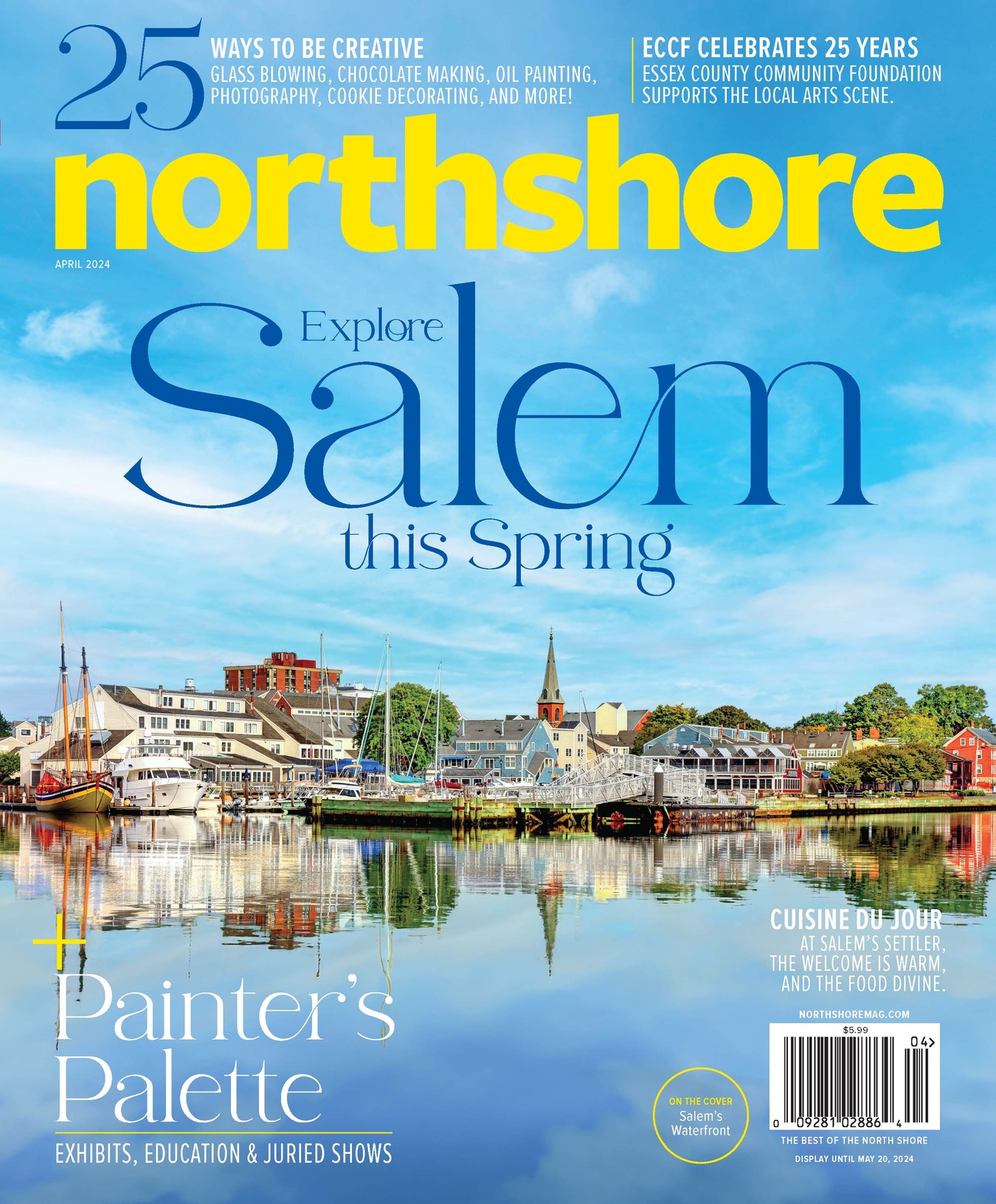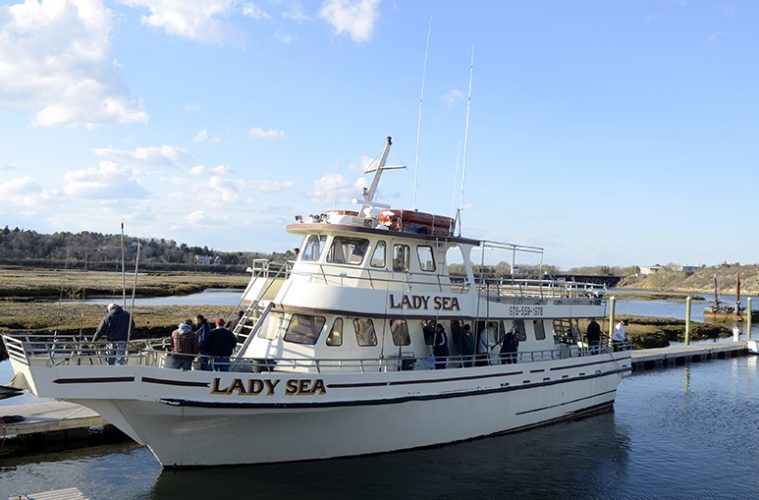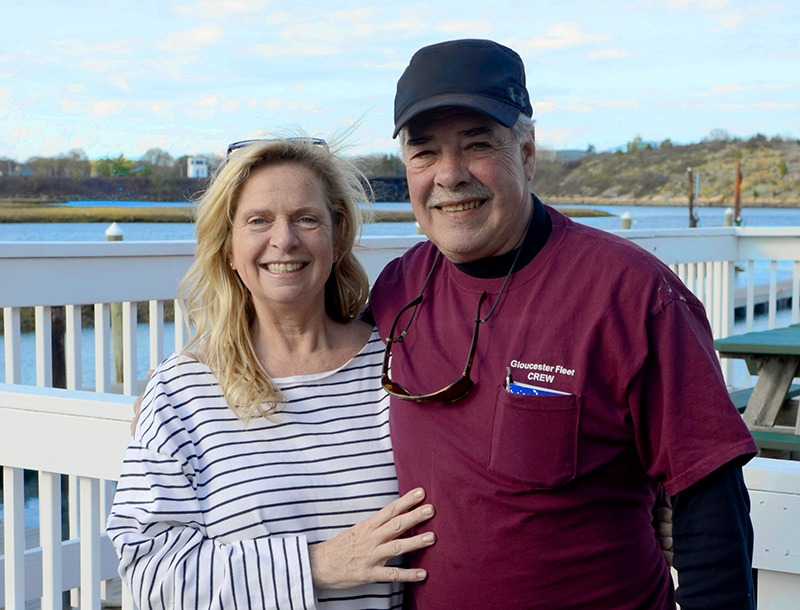Gloucester’s commercial fisherman have dealt with big cuts in catch limits for the last several years. Now recreational fisherman are sharing the pain.
There is no sunrise on a drizzly, early-season morning on the Gloucester waterfront. Instead, the sky gradually turns slightly paler shades of gray as the fishermen file onto the Lady Sea. On- board, they set up their rods and reels and take turns salting clams for bait, preparing for one of their last voyages before new federal fishing regulations take hold.
These aren’t commercial fishermen who are dependent on the sea for their livelihood, but weekenders who just enjoy getting out on the water and maybe coming home with a bucket full of fish to freeze. Up until now, they’ve been allowed to keep all the haddock they can hook. But, as of May, they’re limited to three per man (they’re all men), per trip. They’re still allowed up to nine cod, but the minimum size for that fish has been raised from 19 to 21 inches. And fishing for either species after September 1 is now prohibited.
“September 1 is going to hurt,” says Mike Mann, the captain of the Lady Sea. The 72-foot boat is the only vessel in Gloucester Fleet, the deep-sea fishing and cruise service he runs with his parents, Booty and Carolann Mann. “September is still quite a good month for us, usually. The problem is, the tourists are starting to disappear by September, and the bread and butter for us is our regulars. And to not be able to keep cod and haddock basically knocks that out for us.”
Mann, dressed in a blue hooded sweatshirt and tattered jeans, looks more fisherman than charter boat operator, and indeed he spent six years working on lobster boats and commercial fishing boats before beginning Gloucester Fleet. Alternating between drags off his cigarette and sips from his Dunkin’ Donuts cup, he explains how tourists are mostly happy to just drop a line into the Atlantic and don’t much care what sort of fish they catch. But the avid fishermen— like the ones going out on this dreary day in April—may stay home in September and October if they can’t bring home any haddock or cod, he says.
Big cuts in catch limits are nothing new in Gloucester. Commercial fishermen have faced restrictions so tight—including a 77 percent reduction last year in the amount of cod they can catch—that some have predicted that the independent fisherman here might go extinct, giving way to one or two large, consolidated operations.
|
It’s a jarring thought. Fishermen are Gloucester’s mascot (quite literally—“Fishermen” is the name of the high school football team), and the place and occupation feel as inextricably linked as Iowa and farming, Wyoming and ranching, or West Virginia and coal mining. It seems likely the connection will survive in the popular imagination, even if the fishermen themselves do not. Many of the most popular tourist attractions in Massachu- setts—from Walden Pond to the Freedom Trail to Salem’s witch-history industry—are centered around things that happened in the past. Tourists coming to Gloucester will still want to see the city’s iconic “Man at the Wheel” statue, even if it eventually becomes a relic of a bygone era. They’ll still want to set out on a boat from the seaport they recognize from The Perfect Storm and catch some fish, even if they’re the only ones still doing it. And so, it’s conceivable (if a bit depressing) that these tourists, taken out to sea by Mann, could be Gloucester’s fishermen of the future.
But first, Mann will have to overcome the same sort of regulations and fish shortages that are putting commercial fishermen out of business.
Recreational fishing companies have already had to adapt to the dwindling fish populations, Mann says, by becoming more service-oriented and hiring helpful and friendly crew members. Until now, though, Mann says fishing restrictions may have actually given his own business— now in its seventh season, and the smaller of two such operations in Gloucester—an unintended boost. “Without a doubt,” he says. “You’ve got less nets in the water. That’s got to be a good thing, as far as fish being around. Last year, we had a pretty good fishing season for us.”
Too good, says Maggie Mooney-Seus, a spokeswoman for the National Oceanic and Atmospheric Administration, the agency that issues the fishing guidelines. Last year, recreational fishermen exceeded their quota of 486 metric tons of Gulf of Maine cod by 45 percent, hauling in 706 metric tons of the fish. They caught 256 metric tons of Gulf of Maine haddock, 146 percent more than their 74 metric-ton quota.
“It was necessary,” Mooney-Seus says of imposing the new regulations. “We’re not allowed to overfish stocks. Both the Gulf of Maine cod and haddock stocks are not in great shape. And if the recreational fishermen exceed the quota, then we have to implement accountability measures, and that’s what’s being done here.”
The new rules, she says, are aimed at bringing this year’s catch numbers in line with new quotas of 436 metric tons for cod, and 87 metric tons for haddock.
Mark Tolpin, who lives in Milford and has gone deep- sea fishing once a week during the season for the last five years, says his goal is to reel in ten fish per trip. “Last week I caught seven,” he says. With the new restrictions, Tolpin says he’ll “absolutely” have to toss more fish back into the water. In the past, he’s caught up to eight haddock on a single trip, which under the new regulations would mean he’d have to release five.
But Paul Paisley, who lives in the Berkshires, says nine cod and three haddock is plenty of fish for him. “I’ll be happy with a couple,” he says, adding that he’s sometimes gone whole days without catching anything.
Even with the new restrictions, Mann predicts that Gloucester Fleet will keep going strong, buoyed by Gloucester tourists in the summer months and by die-hard regulars in the early part of the season. The fall, when cod and haddock are off-limits, is more difficult to predict. “As long as the regulations don’t get too out of control, I believe we’ll always have a niche,” Mann says.
With commercial fishermen seeking alternate sources of income, could Mann soon face competition from them? He doesn’t think so. While commercial fishermen have increasingly turned to “six-pack” fishing—taking out six passengers at a time for private expeditions—Mann says it’s unlikely that many will risk purchasing a larger boat like the Lady Sea. Mann says he was only able to get the business started because he got a good deal on both the boat and on dock rental.
“The initial investment to fund a business like this is really high. It’s not something you can just break into,” Mann says. “If you had money…” He stops himself and reconsiders. “But why would you do it if you have money? It’s definitely a labor of love.” gloucesterfleet.com


 Carolann and booty Mann stay hopeful that, depite new industry regulations, their venture will survive
Carolann and booty Mann stay hopeful that, depite new industry regulations, their venture will survive